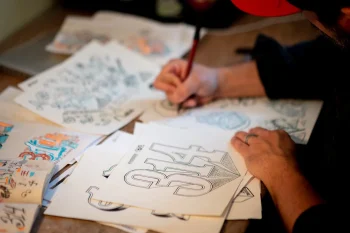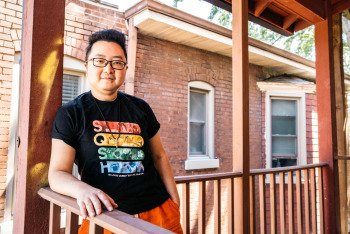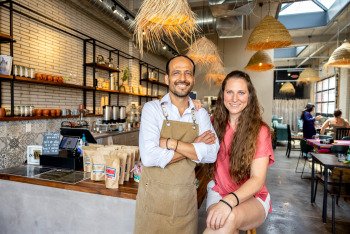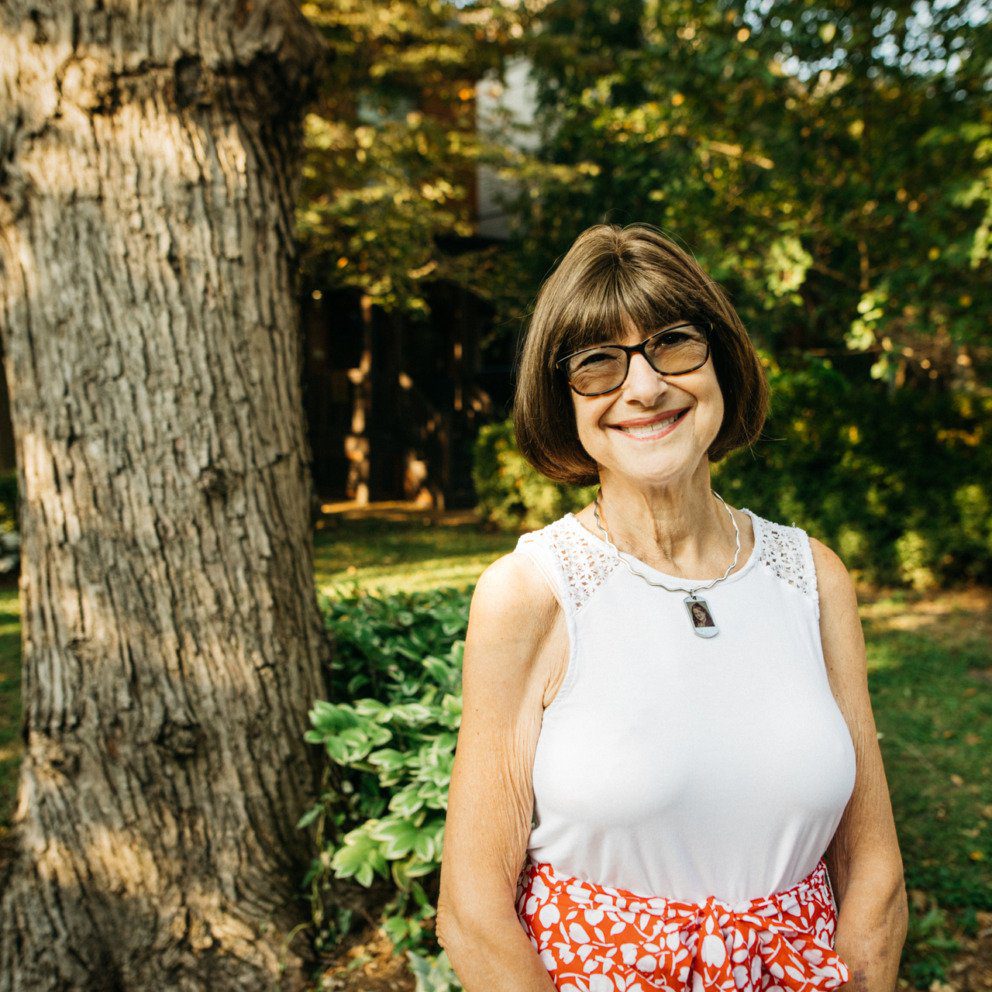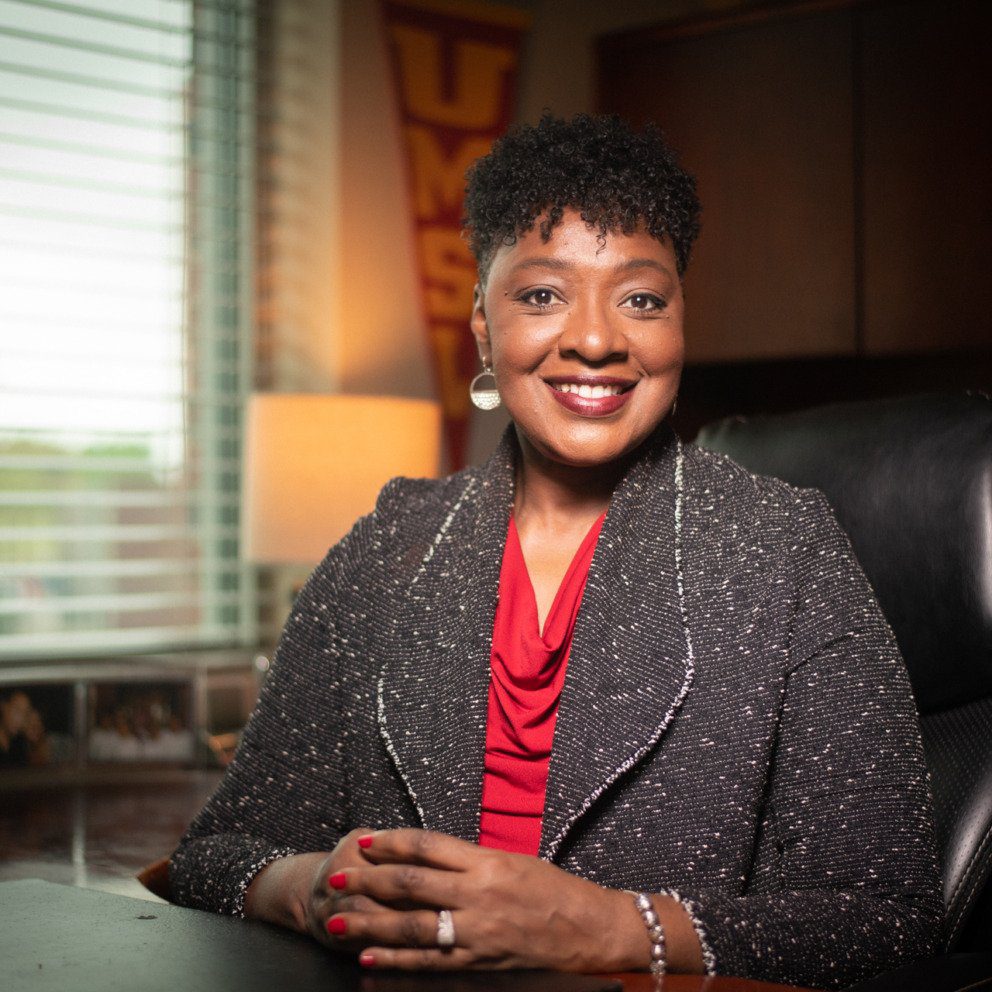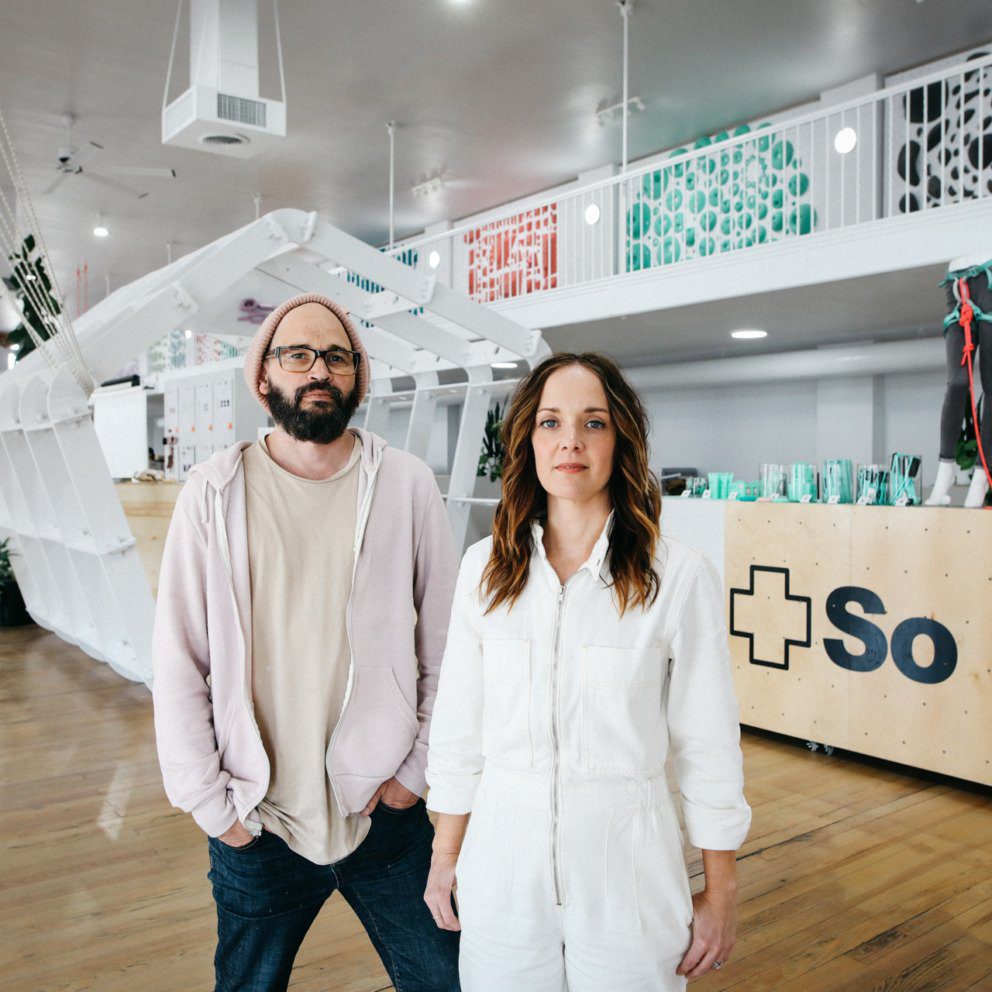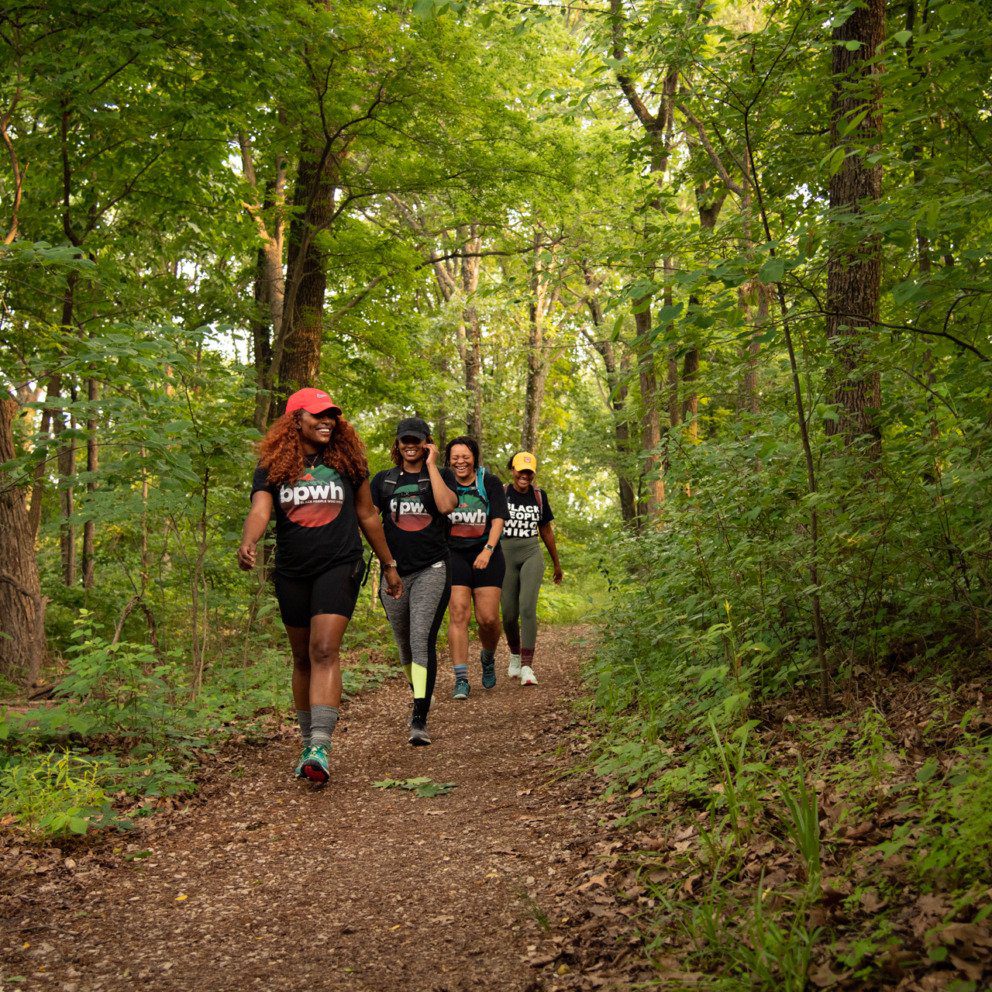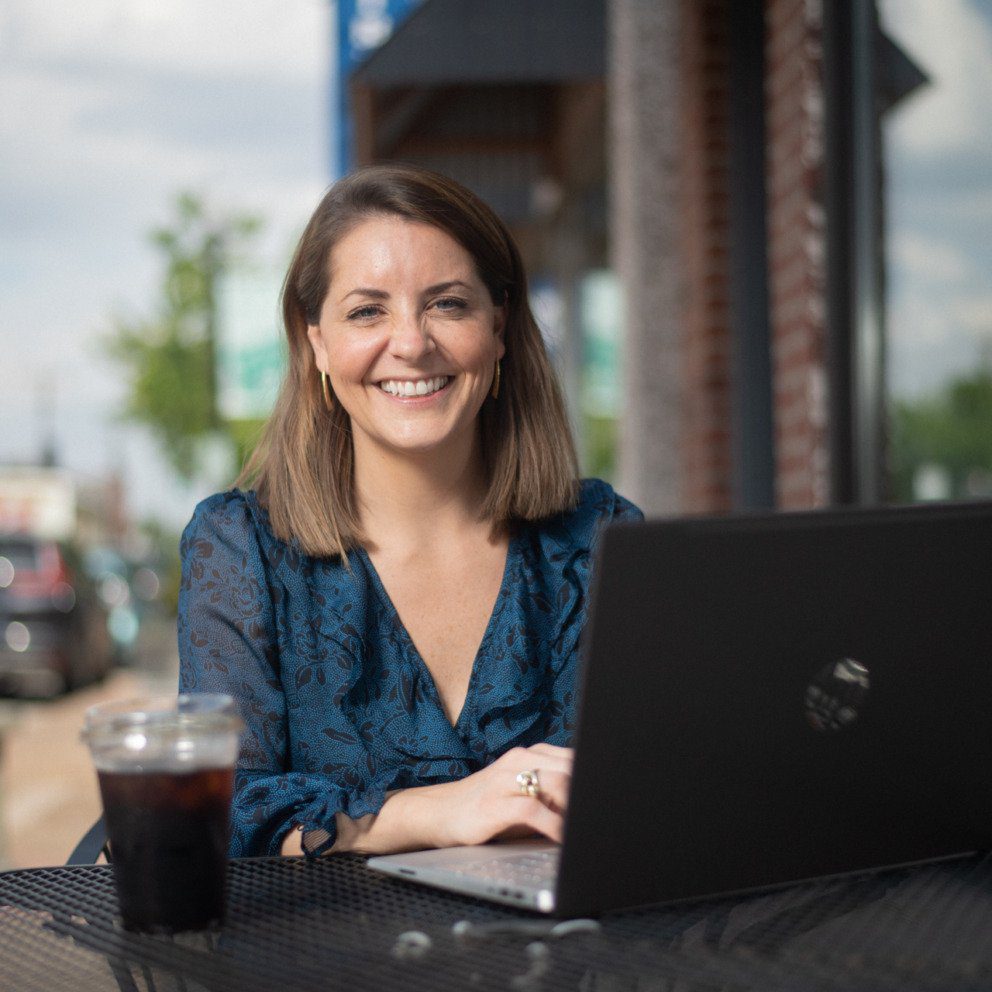A Powerful Lift
As the executive director of Paralympic operations at Logan University, Kelley Humphries-Mascoll is advancing the Paralympic movement in St. Louis and beyond.
Paralympic powerlifting is one of the fastest growing Paralympic sports in the world. Currently practiced in about 100 countries across the globe, it is a supreme test of upper body strength. Given three attempts to lower a heavy bar, hold it motionless above their chests and then lift it straight up, athletes without lower limbs or core muscle strength have been known to bench press up to three times their body weight.
This July, more than 300 of these exceptionally talented individuals will gather in St. Louis for the World Para Powerlifting Parapan American Open Championships, a qualifying event for the 2024 Paris Paralympics. Free and open to the public, the event will take place July 8-11 on the Logan University campus in Chesterfield. Formerly known as Logan College of Chiropractic, Logan is home to nine health sciences degree programs in addition to its flagship doctor of chiropractic degree.
The person behind the event, and behind much of Paralympic powerlifting within the United States, is Kelley Humphries-Mascoll, Logan’s executive director of Paralympic operations. An athlete herself, she played college basketball at Texas Woman’s University, where she studied biology on the pre-med track, aspiring to become an orthopedic surgeon. However, her early experiences in the sports medicine realm, including working with the USA Track and Field team and a wheelchair basketball team in the Dallas area, led her to change course.
“I was able to do some really interesting and eye-opening internships with various chiropractors and professional sports teams, including with the United States Olympic and Paralympic Committees,” she says. “I saw that athletes with disabilities perform at a very, very high level, which makes it that much more worth trying to provide resources and ensure they are treated at the caliber they deserve.”
Humphries-Mascoll holds a Doctor of Chiropractic degree and master’s degree in kinesiology as well as human performance and exercise. In addition, she has a master’s degree in adapted physical education and activity. A licensed paramedic in the state of Texas, her specialty certifications include Advanced Cardiovascular Life Support, Pediatric Advanced Life Support and Prehospital Trauma Life Support. She is recognized as an Internationally Certified Chiropractic Sports Practitioner.
She made the move to St. Louis after being appointed Logan University’s inaugural sports medicine fellow. In this role, she held a variety of clinical and administrative responsibilities, gaining valuable training in middle and upper management. From there, she was promoted to assistant director of Logan’s Human Performance Center, where she oversaw the university’s involvement in adaptive sports, managing all community partnerships in this area. This included oversight of Logan’s chiropractic clinic at St. Louis’ Paraquad Center, an organization that offers a wide range of programs and services in the name of advancing equitable opportunities and independence for people with disabilities. The clinic is currently housed inside Paraquad’s Stephen A. Orthwein Center.
Her rise up the administrative ranks at Logan coincided with a shift in Paralympic powerlifting, whereby the sport’s leaders were calling for a new governing body that could handle its many nuances and complexities. Logan answered the charge, and in doing so, this relatively small St. Louis educational institution came to be the home of an international sport on the rise as well as a catalyst for the overall Paralympic movement. By extension, Humphries-Mascoll became the sport’s most visible advocate.
She considers Logan’s relationship with Paralympic powerlifting to be mutually beneficial, and she hopes this win-win arrangement can serve as a model to other health sciences institutions. “Adaptive athletes are some of the most underserved populations out there,” she says. “There are a plethora of ways that your involvement with an adaptive sports program can serve your internal and external communities.”
To this point, she emphasizes the educational value for students. “Our students have access to world-class athletes who just happen to have disabilities,” she says. “It’s a way for them to enhance their education and understand adaptive sports. It sets them apart.” Highlighting Logan’s example, she encourages leaders of other institutions to have confidence in their ability to gain access to the broader world of adaptive sports, including building relationships with athletes of international caliber.
It makes sense to Humphries-Mascoll that she finds herself in this unique professional position, poised to pave the way for this small but mighty sport. She has always been passionate about working with athletes who have disabilities, an interest that stems from her own athletic background as well as her fascination with the human body. “When I think about everything I went through as an athlete, and then I think about what an athlete who has a disability goes through, it’s amazing what the human body can do, regardless of whatever its physical state might be,” she says.
One distinct aspect of her job is growing and developing Logan’s regional hub initiative. Launched in 2017, the program equips gyms and other athletic organizations across the country with the necessary education and equipment to train Paralympic powerlifting athletes. These “hubs” can then serve as hosts for smaller, regional competitions, expanding awareness and recruiting new athletes. Logan currently partners with 20 different hubs across the United States, and Humphries-Mascoll hopes to expand this number to 24 by the end of the calendar year.
As she busily prepares for the landmark event this July, Humphries-Mascoll says she is most excited about the opportunity to bring together so many extraordinary athletes — and to bring so many newcomers to St. Louis for the very first Paralympic qualifying event to be hosted in the U.S.
“Having all these phenomenal athletes on campus, and their energy, is going to be amazing,” she says. Furthermore, hosting an international competition on Logan’s campus, and by extension, in St. Louis, reflects the might of this developing sport and the people who have championed its growth.
She hopes the championship will open up professional opportunities for Logan University student volunteers. If nothing else, it will be life-changing for them to witness these athletes in-person, she says, giving them valuable exposure to the world of adaptive sports. The event will also build visibility for the sport itself.
“For sports to grow, people have to know more about them,” says Humphries-Mascoll, “so this is a step in the right direction.”
Ultimately, the upcoming event derives its significance from its ability to foster equitable opportunities for all athletes, regardless of their disability status. The goal, as Humphries-Mascoll defines it, is to “create a world where individuals are able to participate in sports in a safe and healthy manner, regardless of whatever their physical capabilities might be, or might be perceived to be.”
That said, it’s also captivating to watch, and seeing it in person makes all the difference, Humphries-Mascoll says. She encourages members of the broader St. Louis community to come check it out. “If you have the chance, come watch these individuals compete,” she says. “They are some very, very impressive athletes, and it’s a really cool experience.”
Join the Story
- Learn more about USA Para Powerlifting.
- Check out the American Open Championships.

